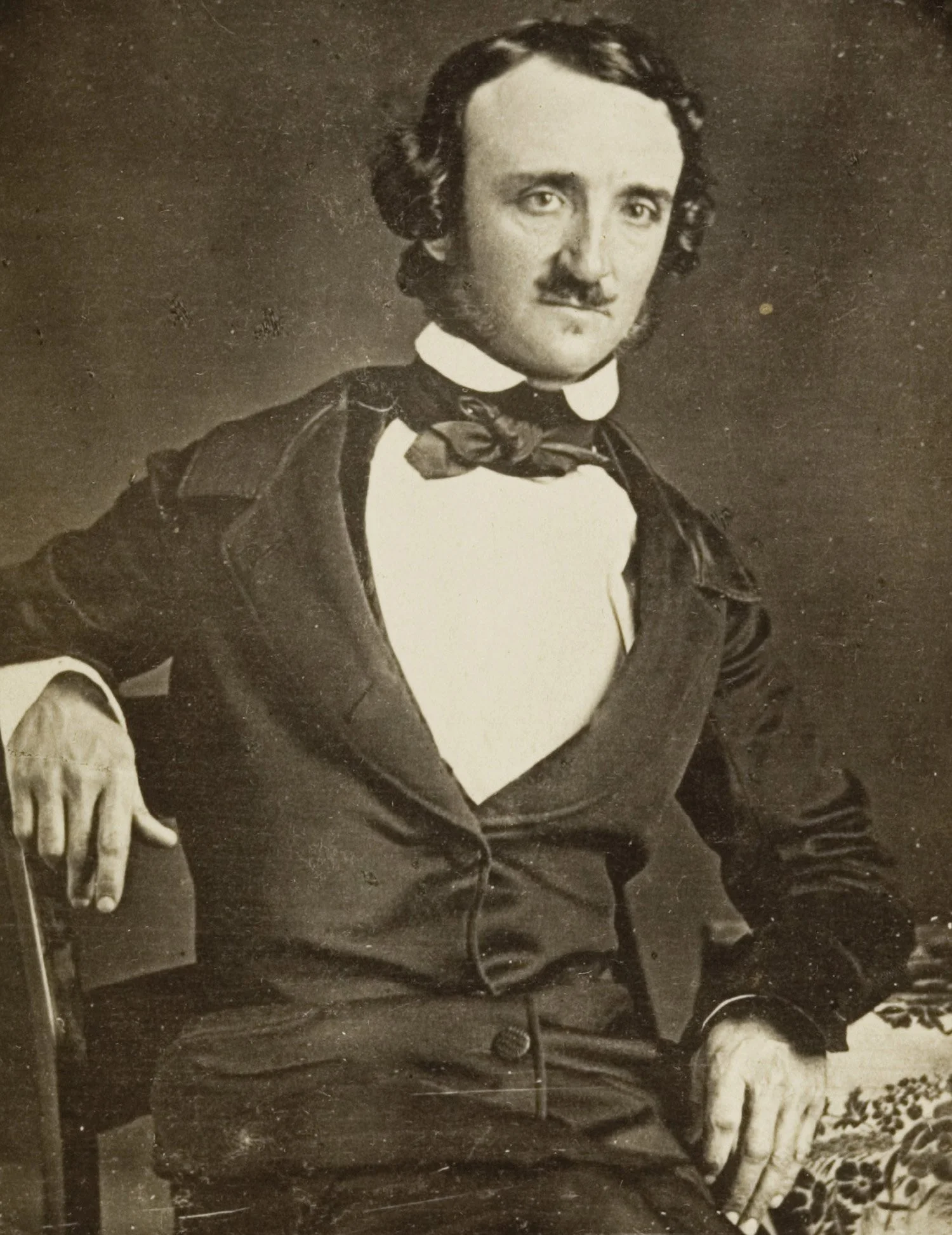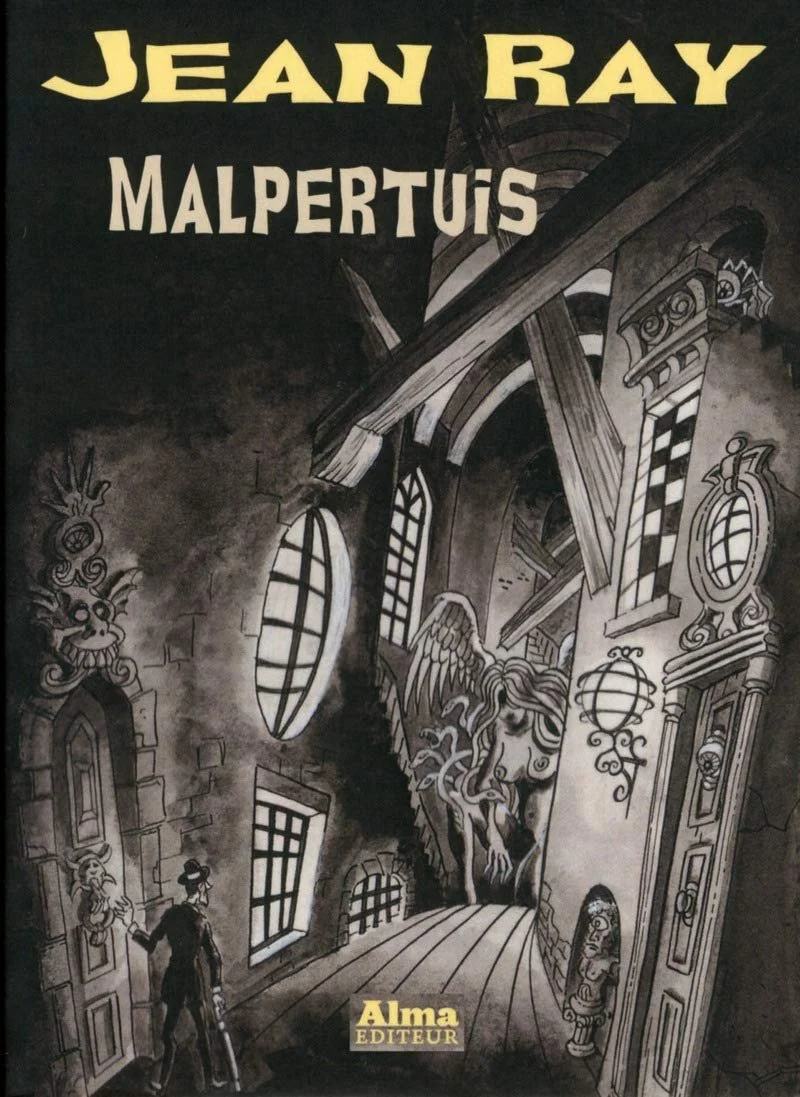The Long Shadow of Edgar Allan Poe
Edgar Allan Poe is probably the most influential American writer of all time. Ernest Hemingway may have pointed to Mark Twain’s Huckleberry Finn as the progenitor of American literature, but with all due respect to both Twain and Hemingway, no American had the influence on not only American literature but world literature that Poe did.
The truth is that Poe may be in weird situation of being both a classic American writer and yet underrated in his own country. There has been a long tradition among a certain part of the literary establishment to dismiss Poe. This starts with Twain and Ralph Waldo Emmerson and goes into the 21st century with the likes of Harold Bloom.
Well, a prophet is not respected in his own land.
While Poe is not beyond criticism (no writer should be beyond criticism), the shadow of Poe’s influence covers the whole world.
In America his shadow fell most prominently on H. P. Lovecraft. The Gent from Providence was, unsurprisingly, heavily influenced by Poe. Lovecraft early on went through a phase of imitating Poe in his fiction. Then there was a latter phase of imitating Lord Dunsany. Eventually, of course, Lovecraft found his own voice in his classic stories but I think that voice was not too dissimilar to Poe’s. In fact, many consider him Poe’s successor, which is a title that would have surprised Lovecraft, who expected to be forgotten. I also think he would have been genuinely honored by it.
Comic adaptation of “The Exiles” by Tom Sutton
Robert E. Howard and Clark Ashton Smith were also admirers of Poe. They are not the only authors published in Weird Tales that were influenced by Poe. Ray Bradbury made no secret of being a fan of Poe. In fact he had Poe, along with other writers of the fantastic and macabre like Lovecraft and Ambrose Bierce, appear in his story “The Exiles,” first published in Maclean’s. Manly Wade Wellman, a pulp writer who does not get as much attention he deserves, also used Poe in his horror story “When It Was Moonlight,” published in Unknown. Fritz Leiber used him in “Richmond, Late September, 1949,” published in Fantastic. (Don’t forget “The Riddle Master” by E.C. Hellwell in Swords of Steel—DMR)
His shadow does not fall just on horror genre writers. Flannery O’Connor, the great Southern short story writer, admitted to being influenced by a book of Poe’s humor. Yes, humor. Both Poe and O’Connor had a dark and grotesque, in the best way, sense of humor in their short stories. I would not be surprised if William Faulkner, another Southern Gothic writer, was also influenced by him. I know that F. Scott Fitzgerald was said to have an obsession with Poe even if his stories seem about as far away from Poe’s as is possible.
Poe’s shadow covers not just America but much of Europe. It fell on France with Charles Baudelaire’s translation of his work. The French have a long tradition of recognizing our greatest writers before we do and Baudelaire’s translation became massively influential on many French poets. The great short story writer Guy De Maupassant had a love of the macabre. One can see echoes of Poe in his classic story, “The Horla,” with its unreliable and somewhat deranged narrator.
Jules Verne credited Poe as his favorite writer. In fact, he wrote a sequel to Poe’s “The Narrative of Arthur Gordon Pym.” A lot of Poe’s work was either science fiction or maybe proto-science fiction.
Over in Belgium, Poe’s shadow falls on Jean Ray. Considered the founder of the Belgium School of the Strange, Ray was known as “the Belgian Poe.” In fact, he uses a quote from him in his classic weird novel Malpertuis. In fact, I see more than little influence on that novel by “The House of Usher.” Both stories are set in mysterious houses populated by eccentric characters. There is a nightmarish brooding atmosphere to both stories and they both leave the reader with questions best left unanswered. Ray’s sea horror story, “The Mainz Psalter,” has been noted as being similar to William Hope Hodgson’s work but the horrific voyage the character goes on can also be likened to Poe’s “The Narrative of Arthur Gordon Pym.”
Poe was also the progenitor of the classic mystery story and thus his shadow falls on Sherlock Holmes creator Arthur Conan Doyle. Holmes even mentions Poe’s detective character Dupin in a less than flattering way in one story. This is almost certainly a backhanded compliment by Doyle to Poe. As such Poe’s shadow falls on the entire mystery genre.
Poe’s shadow reaches across into Russia. Because of the influence of the French, Poe’s translated work was greeted enthusiastically by the Russian literary establishment. One early edition had an introduction by Fyodor Dostoevsky. That is probably unsurprising. Crime and Punishment’s Roskolnikov is an unbalanced and obsessive murderer like many of Poe’s characters. Is it possible that the novel’s detective Perfiry Petrovich is also influenced by Dupin? There is also the main character of Dostoevsky’s novella The Gambler whose addiction to his vice is Poe-like. Even The Brothers Karamazov, perhaps the Old Russian’s greatest work, has elements of Poe. The plot involves murder and revenge. There is even a scene of supernatural horror when one of the brothers, the intellectual Ivan, encounters the devil when drunk. Many consider this part a hallucination, but like many of Poe’s stories it is hard to tell what is real and what is not.
Then Poe’s shadow stretches across the continent to the isle of Japan. First translated during the Meiji era, Poe would influence Ryunosuke Akutagawa, often considered Japan’s greatest short story writer. Akutagawa was respected to the point that he is considered the “father of the Japanese short story” and a major award for short fiction is named after him. He is best known in the West as the writer whose stories “In the Grove” and “Rashomon” became the basis for Akira Kurosawa’s movie Rashomon. One of his greatest stories is “The Hell Screen.” It is a tale of an artist who is hired by a feudal lord to paint a picture of Hell. While based on an earlier Asian story, it has many of Poe’s trademarks like obsession, violence, the nature of art, and unreliable narrators. Its portrayal of the decadent lord’s court recalls “The Masque of the Red Death” and “Metzengerstein.” It is a must read for fans of the macabre.
Then there is Taro Hirai, who took the pen name Edogawa Ranpo. Say it together very fast. He was probably Japan’s best know mystery writer. He created the great detective Akechi Kogoro who was heavily influenced by Dupin and Holmes. Poe’s shadow also hangs over a collection of his works published in America called Japanese Tales of Mystery and Imagination. Many of the stories in it involve obsessive characters. What separates these characters from Poe’s is that the obsession is often sexual in nature.
It also seems likely that the popular horror mangaka Junji Ito falls under Poe’s shadow as well.
What are we to make of this? Simply that Poe’s shadow falls on the whole world. The reason for this is not just the fact we tend to enjoy scary stories. Rather it is that Poe pioneered everything from horror genre to the mystery story to even the psychological story. As I said before Poe’s influence is unmatched.



